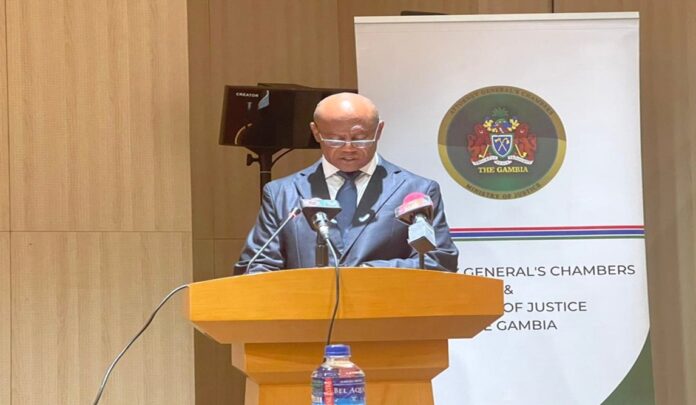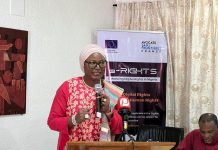By Makutu Manneh
The Government of The Gambia has agreed to deal with “the things” committed by the previous regime and take responsibility for reparations.
This is according to Hussein Thomasi, the Solicitor General of The Gambia, who was speaking on behalf of the Attorney General and Minister of Justice during the national CSOs and victims’ consultation meeting on victims’ reparations bill held on Wednesday, May 18, 2022.
“The present government has accepted that it must deal with the things the previous government did and it must therefore take responsibility for reparations,” he said.
Thomasi said he believed now that the Truth, Reconciliation and Reparations Commission (TRRC) has established the truth and presented its report to the government and it is time to pay up and make up for the reparations.
The solicitor general said payment for reparations to families cannot bring back the death or adequately compensate for the pains and suffering during the past regime. However, he said they believe when reparations are made, it can improve the lives of victims, their dependencies, restore their dignity and ensure that such abuses will not reoccur.
He said through the consultation, the ministry of justice hopes to collect information from different stakeholders to prepare a reparations bill purposefully focused on the welfare of victims.
Thomasi went on to say that the consultative workshop was going to be replicated throughout the country and the information collected will help them further find out the harm that was suffered, find out what the needs and expectations of victims are, work out ways to identify and help victims, meet their immediate needs and make proposals for long term measures for reparations and rehabilitation.
“For the ministry of justice, victims lay at the centre of the transitional justice process. Without the victims, we do not have any need to talk about transitional justice. It is all about the victims, the welfare of victims and victims’ involvement and full participation.
“Gambians and non-Gambians have been affected by the actions of the past regime, if we are to get over the past and build national unity and reconciliation, we have to make sure that people who have suffered those human rights violation abuses are acknowledged by providing them with enough reparations,” he said.
He said the government through the ministry wishes to continue the effective participation and consultations of victims in the design of any program relevant to them particularly the victims’ reparations bill.
Sheriff M. Kijera, Chairman of the Victims’ Centre, said the financial compensation is not just enough, saying that long term medical support and livelihood support is essential in the government’s reparations program.
“We commend the government efforts in creating the conducive environment, the necessary support and financial contribution to victims’ reparation program. However, I must hasten to say that many victims felt that the measures taken by the torc were not comprehensive in nature and as a result they are recommending a post torc reparation committee that would be inclusive to take all victims on board,” he said.
He said the role of civil society in the transitional justice process is very essential to nurture a culture of human rights and rule of law and that dialogue is the key to clear misconceptions.
Ismere Zarifis, Representative of American Bar Association, said the views and recommendations from the consultation will be included in the final report and submitted to the ministry of justice for consideration and preparation of the draft law.
The Attorney General’s Chambers and Ministry of Justice is in collaboration with the American Bar Association. The event is a three-day consultation on the victims’ reparation bill with CSO and Victims of Jammeh’s 22 years rule.

















